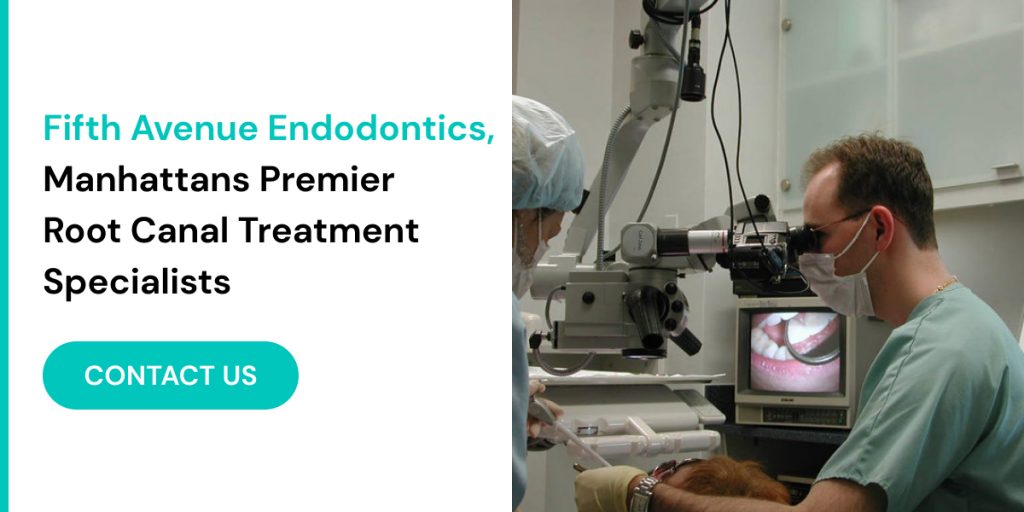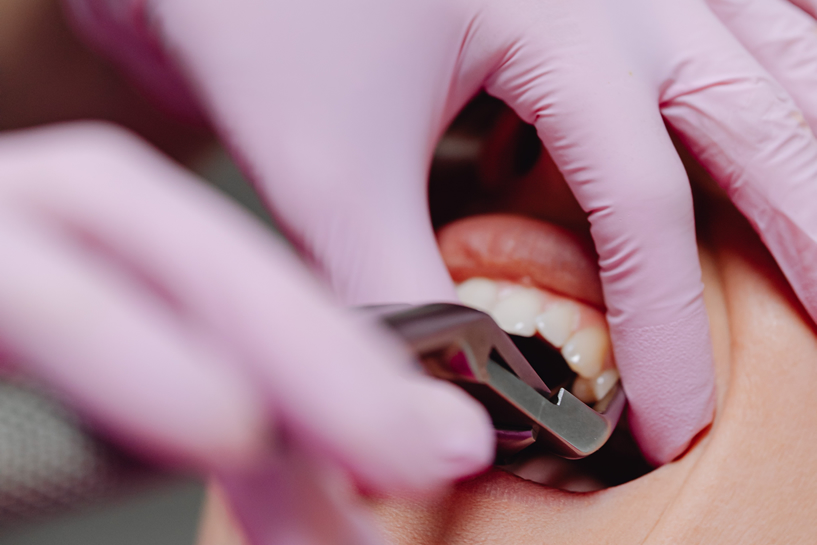Introduction
When it comes to dental care, finding the right specialist for your needs is crucial. Root canal therapy, a common yet complex procedure, requires the expertise of a skilled endodontist. If you’re seeking the best endodontist in NYC, understanding what sets them apart can help you make an informed decision.
Choosing the right endodontist is not just about proximity or cost; it’s about ensuring you receive the highest quality of care. A top-tier endodontist in NYC, such as Dr. Alexander Iofin at Fifth Avenue Endodontics, will have extensive training and experience, using the latest technology and techniques to perform root canal procedures with precision and care. They will also have a strong reputation, often reflected in patient reviews and professional accolades. Moreover, the best endodontists will prioritize patient comfort and communication, taking the time to explain procedures and answer any questions you may have. By considering these factors, you can confidently select an endodontist who will provide exceptional dental care and a positive experience.
What is Root Canal Therapy?
Root canal therapy, also known as endodontic treatment, involves removing infected or damaged tissue from inside a tooth. This procedure is essential for saving teeth that might otherwise need to be extracted due to decay or injury. The best endodontist in NYC, like Dr. Iofin at Fifth Avenue Endodontics, will use advanced techniques and technology to ensure the procedure is as effective and painless as possible.
It’s crucial to be aware of the symptoms that may indicate the need for a root canal. Recognizing these signs early can lead to timely treatment, alleviating pain and preventing further complications. Here are some common indicators:
Severe Tooth Pain
One of the most unmistakable signs that you might require a root canal is experiencing severe tooth pain. This pain can manifest in various ways. It might be persistent, throbbing, or it may occur specifically when you bite down or apply pressure to the tooth. This type of pain often suggests that the pulp inside your tooth is infected or damaged. The pulp, which consists of nerves and blood vessels, can become inflamed or infected due to deep decay, repeated dental procedures on the tooth, or a crack or chip in the tooth. If left untreated, the infection can spread, leading to increased pain and potentially to an abscess.
Prolonged Sensitivity
Prolonged sensitivity to hot or cold temperatures is another warning sign. This sensitivity, which feels like a sharp, shooting pain, often lingers long after the hot or cold source has been removed. It could be a sign of nerve damage or infection inside the tooth. Typically, this sensitivity doesn’t subside quickly and can be quite uncomfortable, affecting your daily activities such as eating and drinking. This persistent discomfort is a signal that the nerves inside your tooth are likely compromised and may require root canal therapy to resolve the underlying issue.
Discoloration of the Tooth
A tooth that becomes discolored, particularly if it turns dark or grayish, can be an indication of internal damage. This discoloration often results from dying or dead pulp tissue within the tooth. When the pulp tissue inside the tooth dies, it can cause the tooth to change color. This is often due to trauma to the tooth or a deep cavity that affects the pulp. While not all tooth discoloration indicates the need for a root canal, it is a symptom that should be evaluated by a dental professional. The best endodontist in NYC, such as Dr. Iofin, will be able to determine whether the discoloration is due to an issue that requires a root canal.
Swelling and Tenderness
Swelling and tenderness in the gums surrounding a specific tooth can indicate an infection that has spread from the pulp chamber into the surrounding tissues. This swelling may be localized to one area and can be accompanied by a pimple-like bump on the gums, known as a dental abscess. An abscess is a clear sign of infection and requires prompt treatment. The infection can cause significant pain and swelling, and if not treated, it can spread to other areas of the mouth or even into the jaw and surrounding tissues. This can lead to more serious health issues.
Other Signs and Symptoms
In addition to the primary symptoms mentioned above, there are other signs that might suggest the need for a root canal. These can include:
- Foul Taste or Odor: An ongoing foul taste or odor in your mouth, even after brushing and flossing, might indicate an infection.
- Gum Boil: The presence of a gum boil or pimple-like sore on your gums can be a sign of an underlying infection.
- Difficulty Chewing: Pain or discomfort when chewing can indicate that the tooth’s nerve is affected, which might necessitate a root canal.

The Root Canal Procedure: Step-by-Step
Understanding the root canal procedure can help alleviate any fears or uncertainties you might have. Here’s a detailed look at what you can expect:
Diagnosis and Preparation
- Examination and X-rays: The first step involves a detailed examination, often including X-rays, to assess the extent of the infection.
- Discussion: Once the diagnosis is confirmed, Dr. Iofin or Dr. Kim will explain the procedure and answer any questions you may have.
Anesthesia and Isolation
- Local Anesthesia: Local anesthesia is administered to numb the affected area, ensuring a pain-free experience.
- Dental Dam: A dental dam is used to isolate the tooth and keep it dry during the procedure.
Cleaning and Shaping the Root Canals
- Accessing the Pulp Chamber: The endodontist will make an opening in the crown of the tooth to access the pulp chamber.
- Removing Infected Pulp: Special instruments are used to remove the infected pulp and clean the root canals.
Filling and Sealing
- Filling: Once the canals are cleaned and shaped, they are filled with a biocompatible material, usually gutta-percha.
- Sealing: The opening is sealed with a temporary or permanent filling.
Restoration
- Crown or Restoration: After the root canal is completed, a crown or other restoration is often placed to protect the tooth and restore its function.
Why Choose the Best Endodontist in NYC?
Choosing the best endodontist in NYC is a crucial decision for your oral health, particularly if you are dealing with a complex dental issue. The benefits of opting for a top-tier endodontist extend beyond just receiving treatment; it encompasses a comprehensive approach to dental care that prioritizes precision, comfort, and cutting-edge technology. Here’s a closer look at why selecting the best endodontist in NYC, like Dr. Iofin at Fifth Avenue Endodontics, can make a significant difference in your dental health journey.
Advanced Techniques and Technology
One of the hallmarks of the best endodontists is their commitment to utilizing the latest advancements in dental technology. Modern endodontic treatments have been revolutionized by state-of-the-art equipment and innovative techniques. For instance, digital imaging has become a cornerstone of accurate diagnosis in endodontics. This technology allows for highly detailed images of your teeth and surrounding structures, facilitating precise treatment planning.
Furthermore, ultrasonic instruments are used for the meticulous cleaning of root canals. These instruments generate ultrasonic waves that can effectively remove debris and infected tissue, enhancing the success rate of the treatment. Another significant advancement is the use of nickel-titanium files. Unlike traditional stainless steel files, nickel-titanium files are more flexible and can navigate the intricate and curved canals of the tooth with greater efficiency and safety. These tools not only improve the quality of care but also reduce treatment time and increase patient comfort.
Expertise and Experience
The level of expertise and experience an endodontist brings to the table cannot be overstated. Top endodontists in NYC have undergone rigorous training and have accumulated extensive experience in performing root canal therapies and other endodontic procedures. Their depth of knowledge allows them to handle even the most complex and challenging cases with a high degree of confidence and precision. This expertise is particularly important in endodontics, where the success of a procedure often hinges on the clinician’s ability to navigate the intricate anatomy of the tooth’s root system. Experienced endodontists are adept at identifying and addressing potential complications, ensuring that each step of the procedure is performed with utmost care. Their skill set includes not only technical proficiency but also the ability to manage patient anxiety and provide a reassuring presence throughout the treatment process.
Patient-Centered Care
A defining characteristic of the best endodontists is their unwavering commitment to patient-centered care. This approach places the patient’s comfort, understanding, and overall experience at the forefront of the treatment process. From the moment you step into the office, you can expect a warm and welcoming environment designed to alleviate anxiety and promote a sense of well-being. Top endodontists take the time to thoroughly explain each procedure, addressing any concerns or questions you might have. This transparency helps build trust and ensures that you are fully informed about your treatment options and the steps involved. Additionally, these practitioners are highly attuned to patient comfort, employing various techniques to minimize discomfort and manage pain effectively. Their goal is to make your experience as stress-free and positive as possible, recognizing that a relaxed patient is more likely to have a successful outcome.
Holistic Approach to Dental Health
Choosing the best endodontist in NYC also means opting for a holistic approach to dental health. These professionals understand that dental issues can have far-reaching impacts on your overall health and quality of life. Therefore, they not only focus on treating the immediate problem but also on preventing future issues and promoting long-term oral health. This holistic approach often includes educating patients on proper oral hygiene practices, dietary recommendations, and regular follow-up visits to monitor and maintain the health of your teeth and gums. By fostering a proactive approach to dental care, top endodontists help you achieve and maintain a healthy, beautiful smile for years to come.
Post-Procedure Care
After your root canal therapy, follow your endodontist’s instructions carefully to ensure a smooth recovery. This typically includes avoiding hard foods, maintaining good oral hygiene, and attending follow-up appointments.
Immediate Aftercare
- Avoid Hard Foods: For the first few days after the procedure, avoid chewing on the treated tooth and stick to soft foods.
- Oral Hygiene: Continue to brush and floss your teeth as usual, being gentle around the treated area.
Long-Term Care
- Regular Check-Ups: Attend follow-up appointments with your endodontist to monitor the healing process and ensure there are no complications.
- Restorative Work: If a temporary filling was placed, you’ll need to return to your dentist for a permanent restoration, such as a crown.
Common Myths About Root Canal Therapy
There are many myths and misconceptions about root canal therapy that can cause unnecessary fear and anxiety. Let’s debunk some of these common myths:
Myth 1: Root Canals are Painful
With modern anesthesia and techniques, root canal therapy is no more painful than getting a filling. The procedure actually relieves the pain caused by an infected or damaged tooth.
Myth 2: Tooth Extraction is Better
Saving your natural tooth is always the best option. A root canal allows you to keep your tooth, maintain your natural bite, and avoid the need for more complex and costly dental work in the future.
Myth 3: Root Canals Cause Illness
This myth is based on outdated and debunked research. There is no scientific evidence to support the claim that root canal therapy can cause illness. The procedure is safe and effective when performed by a skilled endodontist.
The Importance of Timely Treatment
Delaying root canal therapy can lead to more severe dental problems and increase the risk of tooth loss. Timely treatment can save your tooth and prevent the spread of infection to surrounding tissues.
Preventing Further Damage
An untreated infected tooth can cause significant damage to the surrounding bone and tissues. Early intervention helps preserve the health of your entire mouth.
Avoiding Complications
Infections can spread from an untreated tooth to other parts of your body, leading to serious health complications. Root canal therapy eliminates the source of infection, protecting your overall health.
Choosing the Right Endodontist
When selecting an endodontist in NYC, consider the following factors to ensure you receive the best care:
Qualifications and Training
Look for an endodontist with advanced training and qualifications. Board certification and memberships in professional organizations, such as the American Association of Endodontists, indicate a commitment to excellence.

Experience and Reputation
Choose an endodontist with a proven track record of successful root canal treatments. Patient reviews and testimonials can provide insight into their reputation and quality of care.
Technology and Techniques
Ensure the endodontist uses the latest technology and techniques. Modern equipment and methods improve the accuracy, efficiency, and comfort of root canal therapy.
Patient Comfort
A good endodontist prioritizes patient comfort. Look for a practitioner who takes the time to explain procedures, answer questions, and make you feel at ease.
Maintaining good oral hygiene and regular dental check-ups are crucial for the long-term success of your root canal treatment. Here are some tips to keep your teeth healthy:
Brushing and Flossing
Brush your teeth at least twice a day with fluoride toothpaste and floss daily to remove plaque and prevent decay. Use a soft-bristled toothbrush and gentle, circular motions to clean your teeth effectively without causing damage to the treated area.
Regular Dental Visits
Visit your dentist regularly for check-ups and cleanings. Regular visits help detect and address any issues early, ensuring that your root canal and surrounding teeth remain healthy. Your dentist can monitor your progress and provide professional cleanings that enhance your at-home oral care routine.
Healthy Diet
Maintain a balanced diet and limit sugary foods and drinks. A healthy diet supports overall dental health by providing essential nutrients that strengthen your teeth and gums. Incorporate plenty of fruits, vegetables, and dairy products into your meals.
Protecting Your Teeth
If you play sports or grind your teeth at night, use a mouthguard to protect your teeth from injury and wear. A custom-fitted mouthguard can prevent damage to your teeth and the treated area, ensuring that your root canal remains intact and effective for years to come.
Conclusion
Root canal therapy can save your tooth and relieve pain, but it’s essential to choose the right specialist for the job. By opting for the best endodontist in NYC, such as Dr. Iofin at Fifth Avenue Endodontics, you can trust that you’re in expert hands, receiving top-notch care tailored to your needs. If you suspect you need a root canal or have any dental concerns, don’t hesitate to reach out to a trusted endodontist in Manhattan.
With the right endodontist, root canal therapy can be a straightforward and comfortable experience, leading to a healthier, pain-free smile. Don’t let fear or misconceptions prevent you from seeking the treatment you need. Take the first step towards better dental health by consulting with a highly qualified endodontist today.

